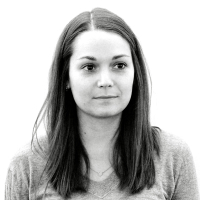The widespread misuse of Adderall and other ADHD medication on New York’s college campuses has come to the attention of the state’s senior U.S. senator—and Chuck Schumer wants a crackdown. Pointing to studies suggesting that up to 35 percent of college and university students use prescription stimulants to study, Schumer said Sunday that “using Adderall as a study drug is academic doping.”

The senator is just the latest public figure to decry student use of so-called study drugs without a formal diagnosis. Several schools across the country have implemented policy changes similar to those Schumer is proposing, such as requiring students to provide detailed medical and educational histories and sign contracts promising not to abuse or sell their medication to obtain a diagnosis from their campus health center. But Schumer’s initiative, which he’s described as “a matter of student health, safety, and academic integrity,” raises questions about whether a drug that will always have a legitimate use for some can ever be controlled.
Sports writer Tim Marchman, a Daily Beast contributor, suggests that if Major League Baseball’s attempt to crack down on amphetamine use among players is any indication, the answer is no. In 2005, the league and the players’ union agreed to ban amphetamines after decades of widespread usage and acceptance as a means of performing through grueling schedules. It wasn’t long after amphetamines were banned, however, that the league introduced a therapeutic exemption for players with a prescription. In 2012, about 9 percent of MLB players were granted medical exemptions for Adderall and other ADHD medications.
“In a controlled world like professional sports, players agree not to use them, agree to be tested, and a quack can still say they need it for medical reasons,” said Marchman.
“These are drugs with legitimate uses for legitimate conditions, so you inherently have loopholes that are going to be exploited,” he added. “If you can’t control it with a few hundred players, I don’t know how you could do anything serious to control it among college students.”
Schumer’s plan to rein in Adderall usage hinges on making it harder for students to both get ADHD diagnoses and to refill prescriptions from outside doctors through student health clinics, an approach that has worked at California State University, Fresno, said student health director Catherine Felix. In addition to requiring a full ADD or ADHD evaluation—which can take a couple of months to complete—students must sign a contract agreeing to consult monthly with a mental-health professional, to be drug tested, and not to share their pills with anyone else before they are given a prescription.
“We’ve definitely seen a difference. Only the serious ones come here,” said Felix of how the contract requirement has deterred students without a legitimate need for stimulants from seeking prescriptions at the student health center. “I don’t want to contribute to cognitive enhancement that has created long-term health issues for students who don’t need to be medicated.”
In 2012, in response to a push from students, Duke University added “the unauthorized use of prescription medication to enhance academic performance” as a form of cheating to its Academic Dishonesty policy. But, as Marchman predicted, “the reality is that enforcement is extremely difficult,” acknowledged Sue Wasiolek, Duke’s dean of students.
“At the end of the day, this is more of a symbolic statement than anything else,” she said, noting that many campus policies are equally as hard to implement. “It’s a message to the students that this is not something that Duke supports or condones in any way.”
Wasiolek said the school has not done any kind of survey on Adderall usage to determine whether the policy has made an impact. And while Felix said the cost difference between prescriptions from Fresno’s campus health center and those filled at a regular pharmacy is enough to keep most students from finding the drugs elsewhere, Wasiolek argued that students hardly get their meds—even if it’s just a refill—exclusively from campus health centers.
But the majority of college students who take stimulants without a prescription don’t get them by conning a doctor or student health pharmacist, said University of Michigan associate professor Sean Esteban McCabe. They get them from their peers—and usually for free.
McCabe has done extensive research on the effects of Adderall on adolescents and young adults, both in school and out, and urges that programs intended to restrict access to stimulants don’t make it too difficult for students with ADD or ADHD to obtain the medication they need.
“There should be a multifaceted approach,” McCabe suggested, one that combines tightening restrictions on prescriptions with educating students about the potential health risks.
“Prescribed students should be provided with safe alternatives for storing their medication and strategies for handling being approached for their pills,” he said. “And students benefit from knowing that their peers are not excellent academically,” as the data show that “the notion of academic doping for excellence is actually a myth.”
When he announced his new initiative on Sunday, Schumer, whose office did not return a request for comment on this story, held up a prescription bottle in one hand and a coffee cup in the other and said, “There are better ways to pull an all-nighter and stay up. There’s coffee, there’s things like NoDoz.”
While acknowledging that he pulled plenty of all-nighters in his day, McCabe called the senator’s message misleading. “The reality is, the safest thing is to develop appropriate study skills,” he said. “There are more effective ways to study than pulling all-nighters.”





